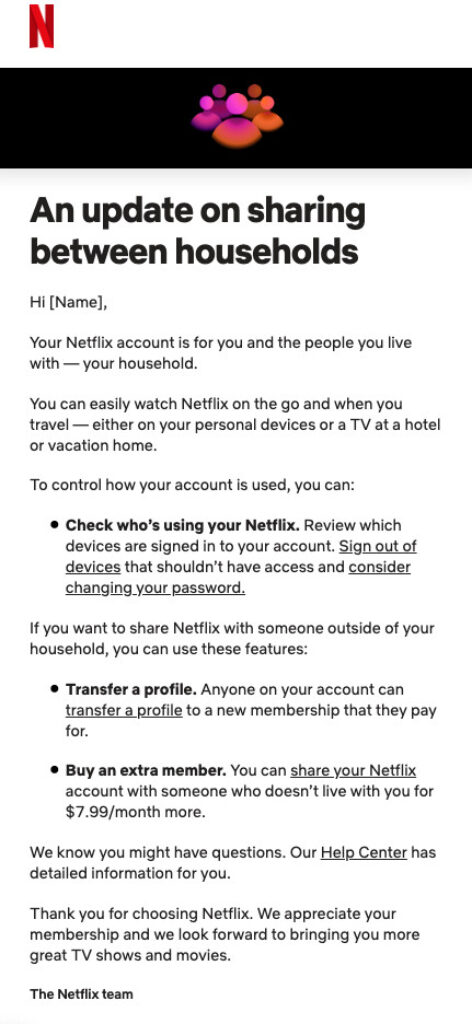Advertisements
Netflix had previously announced that sharing passwords would now come with a price. Today, the company has officially launched its password sharing plan, which was under testing for some time.

The plan has been initiated in the United States, where users will have to pay a fee for sharing their account outside their household.
Let’s commence !!!
Netflix Password Sharing
Netflix is now notifying its users via email that anyone who wishes to share their password with someone outside their family will have to sign up for an additional member in their account.
This means that if a user wants to share their password with someone, they will have to add an extra member to their account, and only then will they be able to share the password. To do so, users will need to purchase an extra member slot, which is priced at $7.99 per month (approximately 660 rupees per month).
Additionally, the added member must be from the same country and cannot be from outside the country.

Furthermore, if anyone wants to add a member, they must already have a Netflix Standard or Premium plan. This feature will not be available with Netflix plans that include ads or advertisements.
Expansion of the Plan
The company has also announced that after the United States, this password sharing plan will gradually be made available in other markets, including India.
With this new plan, the users who previously shared their accounts and passwords with friends or relatives to watch content on the app or site for free will no longer be able to do so.

According to the company, those who continue accessing Netflix accounts without proper payment will eventually face device restrictions, meaning their devices will be gradually blocked from accessing it.
Conclusion :
In conclusion, Netflix’s introduction of a password sharing plan marks a significant change in their policies. Users will now be required to pay for sharing their account with individuals outside their household, discouraging free access to content.
As this plan rolls out in different markets, it remains to be seen how users will respond to this new policy.







